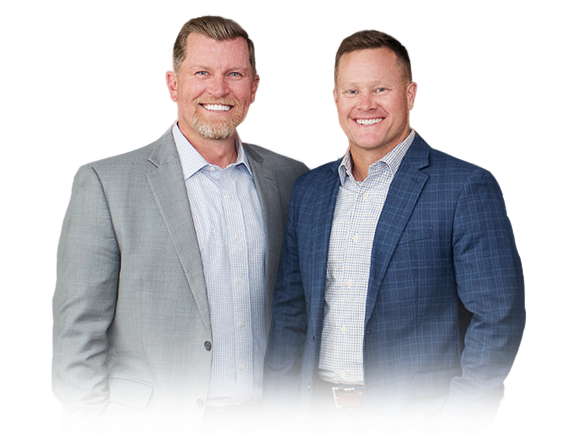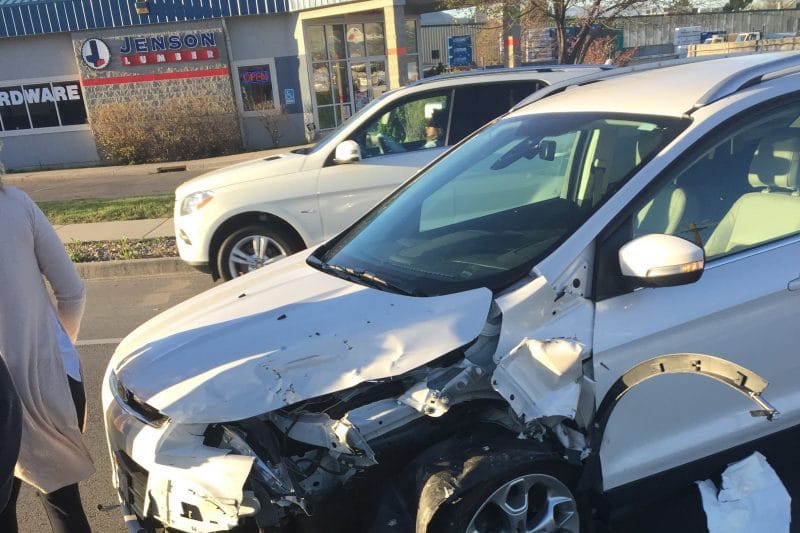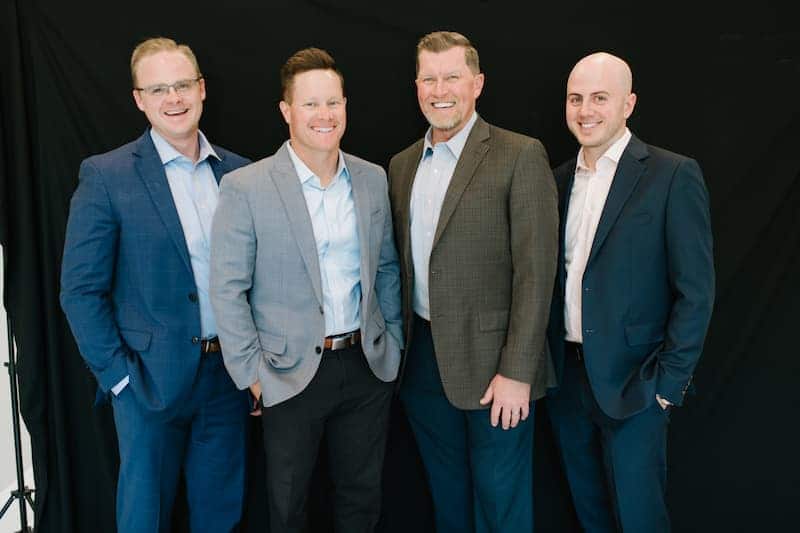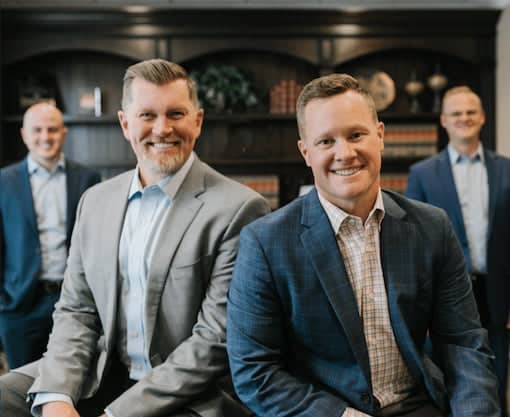CONTACT A AGGRESSIVE UTAH CAR ACCIDENT ATTORNEY TODAY
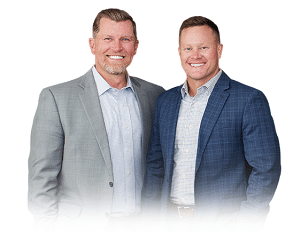
Here at Good Guys Injury Law, we handle cases a bit differently than an average law firm. Although we do specialize in auto accident and injury cases, we’re not a run-of-the-mill practice. Unlike some high volume legal teams, Good Guys Injury Law makes it a point to have smaller caseloads — this ensures that you get the personal attention that you not only need, but deserve to have after an accident.
Table of Contents
This is why our motto reads: We see more than just your accident, we see you.
At Good Guys Injury Law, you’re not just a case number. What’s more? We make it our mission to take care of everything following the accident, including communicating with the insurance company and helping you get affordable, quality medical care.
Here are just a few of the perks of working with the team at Good Guys Injury Law:
- Free Consultation: Call today for a free consultation and case evaluation. Sometimes legal jargon can be confusing — let us help you make sense of it all. Our attorneys are here to answer all of your questions.
- No Fee Guarantee: At Good Guys Injury Law, we offer a “no fee guarantee.” This means we’ll never ask you to pay us directly for our legal help — we get paid when the case settles with the insurance company. Why do we offer this guarentee? Because we’re confident in our services. Good Guys Injury Law has a 98% success rate. We’ve settled thousands of cases and have been in business for more than 16 years.
- Communication: With Good Guys Injury Law on your side, you’ll never have to deal with the frustration of getting through to your insurance company. We’ll handle it all, so you can focus on getting better.
- Medical Bills: We’ll also help you get the medical care you need, even if you don’t have health insurance or have a high deductible.
- Rentals and Fees: Need a rental car? We can help! Good Guys Injury Law can help you with your property damage claim, get you a rental car, and help you avoid unnecessary storage fees.
What if I don’t want to sue the person who caused the car accident? It was just an “accident.”
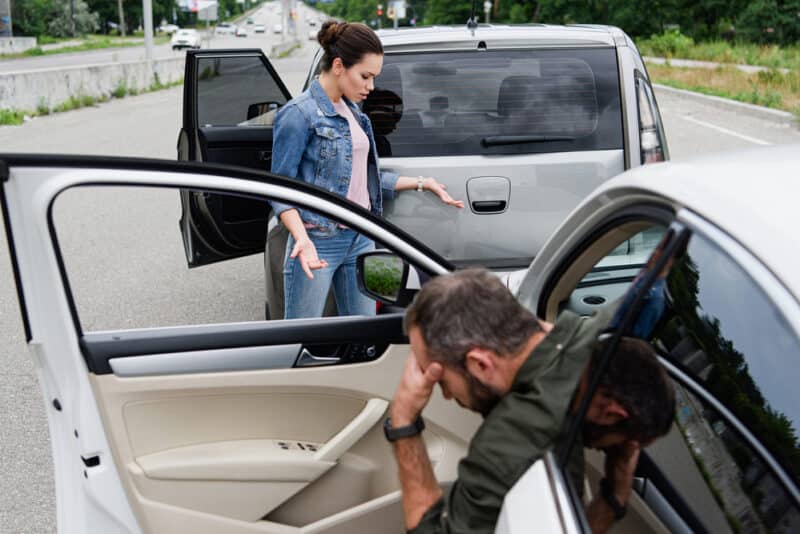
Instead of further inflaming the situation, we work with the insurance companies directly. That’s what your insurance is for, after all! It’s there to give you a financial safety net to help you and/or your loved ones recover in case of an accident.
Dealing with an auto accident can be a traumatic event – let Good Guys Injury Law carry some of the burden.
A car accident can be a jarring experience. If you’ve been in an accident, you may be thinking:
- How will I pay for my bills?
- How long will my recovery take?
After an accident, it’s important to ensure you have the resources you need to heal physically and emotionally — and that any damage to your car is adequately covered. The Utah car accident lawyers at Good Guys Injury Law are committed to getting you the compensation you deserve every step of the way.
What does a car accident lawyer do?
A car accident lawyer is a licensed attorney who intervenes on your behalf after an autoaccident. Their goal is to help you receive financial compensation so you can recoup lost income, pay for medical expenses such as Brain Injury or Bone Fractures, and gain peace of mind after an accident.
Here are a few examples of what car accident lawyers do:
- gather evidence to create a solid case
- appear in formal legal proceedings
- advocate for their clients by negotiating with their insurance company
- work tirelessly to achieve a positive outcome for their clients’ case
How can a car accident lawyer help me?
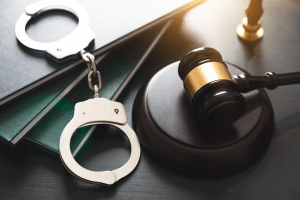
During this stressful time, you reserve the right to understand your insurance coverage and the insurance company’s responsibilities to you. That’s why we’ve made it our mission to level the playing field between accident victims and insurance companies by providing this information to the community for free.
|
How can the lawyers at Good Guys Injury Law make a difference in your case?
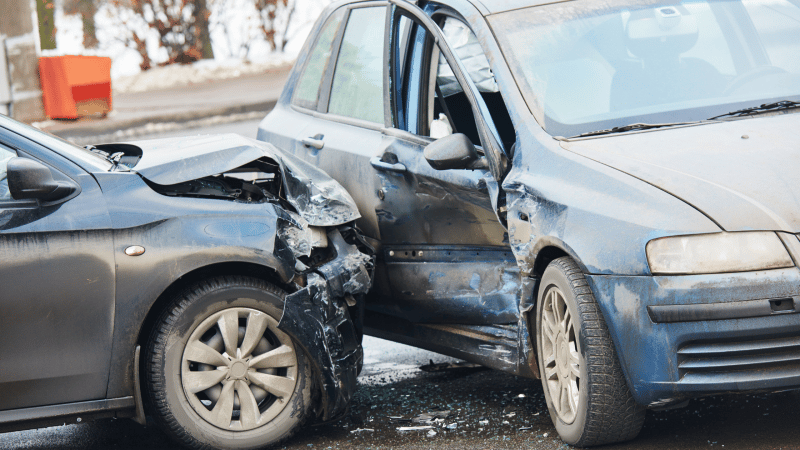
It’s difficult to win a case on your own, especially when you’re focused on recovering from your injury. A successful personal injury settlement can cover many different types of losses.
These include:
- medical bills
- lost wages
- ongoing medical treatments and medications
- pain and suffering
- decreased quality of life
- property damage
We work to gather the right evidence and communicate with witnesses and insurance companies so you don’t have to. This way, you can focus on your physical, mental, and emotional recovery while knowing that your legal claim is in good hands.
Utah Car Accident Resources
With the right resources, you can rebuild your life after a car accident. Here are some important steps to take and ways to get all the information you need after an accident.
How to Get Your Police Report
To get a police report, there are certain steps you need to follow:
- Gather information about the accident, including the date, parties involved, and the location. This information will help the police identify the report you’re looking for.
- Go to the website of the police department that investigated the accident.
- Follow the steps to request a car accident police report. You may make the request online, over the phone, or in person.
You may be able to file a police report online via the Salt Lake City Police Department or another law enforcement department. Your Salt Lake City car accident lawyer can help you gather the details you need.
Hit and run reward program
The Hit-and-Run Reward program has been established by personal injury attorneys like Good Guys Injury Law to provide the public with an easy way to communicate tips on hit-and-run accidents. The program is tied to the “We Tip” crime hotline, a neutral third-party organization that passes information to law enforcement agencies. All reports are anonymous unless the reporter wants to be eligible for a reward.
Good Guys Injury Law offers up to $1,000 for information leading to the arrest and felony conviction of a hit-and-run driver. If you have witnessed a hit-and-run accident, call 1-800-644-8678 to provide your anonymous tip and you could collect a reward.
How to File an Insurance Claim
To file an insurance claim, there are certain steps you need to follow:
- Gather all the information. It’s important to have all of the information — this way we can relay it to the insurance company clearly.
- Go to your insurer’s website or app. Navigate to the area to file a claim.
- Make your report. With most companies, you can make the report online. Making a web report allows you to take your time and think through the information you’re disclosing rather than speaking live to a claims representative.
- Be clear and concise. You don’t want to make errors in the reporting process that could be used against you and unravel your claim. Your report should be clear, complete, and concise.
Preventative Maintenance Guide
Keeping up with your vehicle’s maintenance needs will help you and others stay safe on the road. Check out our comprehensive Preventative Maintenance Guide for 2021 for tips on how to keep your car running efficiently and prevent dangerous conditions.
Free Consultation
Learn your Rights. Get Answers. Free.
Utah Car Accident FAQs
Car accidents can be frustrating and devastating. You’re likely to have questions about medical treatment, car repairs, damages, paperwork, and more. Here are answers to some of your frequently asked questions about Utah car accidents from our personal injury attorneys:
Call 911. Always call 911 after a car accident. If someone requires emergency medical care, paramedics should be summoned without delay. Any concerns of lesser importance may be taken care of once help is on the way. After the police and paramedics are en route to the scene and you have provided first aid, you should exchange contact and insurance information with the other drivers and witnesses involved, take pictures of the accident and surrounding area, make a note of the time and record any details that seem relevant.
Settling a car accident immediately on-site is problematic for a number of reasons: You aren’t likely to have things wholly in perspective right after an accident. You almost certainly don’t know what the damage will actually cost. Plus, accident survivors might be under pressure to accept less compensation than they are entitled to. Settlements should be made objectively and dispassionately. That cannot happen on-site in the aftermath of a car accident.
You should interact cautiously with insurance providers after a car accident. Particularly when dealing with someone else’s insurance company, you should be careful what kind of information you divulge and how. Insurance companies may make it sound as though sharing certain records is standard procedure or mandatory. But aside from the accident report you fill out for the police and the process of making a claim, few things must be shared upon demand. A car accident attorney can handle interactions with insurance providers for you.
Yes! You always need to see a doctor after a car accident! You may not have suffered a visible scratch, and you may feel fine, but not all damages are apparent. In fact, many are effectively masked by adrenaline in accident scenarios. If something is wrong with you, you may be the least qualified to detect it or to appreciate its gravity. A medical professional knows best when you should seek treatment after an accident.
Besides constituting an important part of your evidence, medical records play a role in a car accident to project the cost of treatment, length of recovery, and financial loss. Knowing the probable price of treatment can help to determine how you want to seek financial relief and ultimately what you want to receive in compensation. Medical records prove your case and ultimately set the stage to determine the probable value of the claim.
Utah law in 31A-22-307 entitles an accident victim to up to $3,000 in PIP coverage. The victim may also recover damages up to the limits of their no-fault and uninsured/underinsured motorist policy through their own insurer. If the case meets the threshold for serious or permanent injury or disability, the victim may go outside the no-fault system and pursue a personal injury claim to recover a variety of damages, including economic losses and non-economic injury, including pain and suffering.
Because Utah is a no-fault state, even a person who contributes to their own injuries in an accident may seek compensation under their insurance coverage. Where there is an injury, there is an opportunity for a claim. Comparative fault may not be cited as grounds for an insurer to deny a claim. However, the compensation that a victim receives in a lawsuit against the other driver may be reduced by their percentage of fault through Utah’s comparative negligence laws. The victim may be denied compensation completely in a legal claim if they are 50% or more to blame for a car accident in Utah.
The statute of limitations for filing a car accident claim in Utah is four years from the accident. However, there are some exceptions for the delayed discovery of harm, child victims, and mentally disabled individuals. In addition, the statute of limitations may be much shorter for filing a claim in cases of wrongful death or when the defendant is a government entity.
Any party whose conduct causes or worsens an accident can be held liable for damages after a Utah car accident. This can mean that another driver is at fault. It can mean that a construction company is at fault for failing to post warnings, and it can mean that an auto manufacturer was negligent in constructing working airbags, for example. It’s important to conduct an investigation to determine who can be held liable for damages based on the unique circumstances of the accident.
If the driver’s negligent behavior causes their passengers injury, then yes, the passengers may hold them responsible for car accident injuries. A driver has a duty to the passengers of their own vehicle just like they have a duty to other drivers on the road. If they are negligent in a way that causes injuries, the driver may be responsible to others in their own vehicle.
No. If the other driver is uninsured or underinsured, you’re not necessarily out of luck for car accident compensation. This is what uninsured and underinsured coverage is for. Plus, there may be other parties, like a vehicle manufacturer, that are responsible for damages. Furthermore, if that coverage fails to cover the cost of an accident, you have the option of suing the at-fault party without going through their inadequate insurance.
Generally, you want to be as consistent as possible from the very beginning. On the other hand, people make mistakes – especially after auto accidents when heads may not be clear because of injury and stress. If you realize later on that your first statement about the accident wasn’t quite on the mark, you should change it. An attorney can help you make this kind of amendment effectively to ensure that you don’t jeopardize your rights.
You need to contact a personal injury attorney for car accidents in Utah if you have moderate or serious injuries, if there are questions of fault or if you don’t believe that you are fairly receiving the compensation that you deserve. An attorney can help you understand your rights and respond appropriately, whether that means evaluating the action of the insurance company or taking legal action on your behalf. They can help you understand if it’s appropriate to go it alone in your circumstances or if you may benefit from the services of a personal injury attorney for car accidents.
According to Utah law 31A-26-301.6(3)-(4), insurers must begin payments for medical compensation within 30 days of settlement and within 45 days for income replacement benefits. Depending on the complexity of the accident, it may take anywhere from several weeks to a year or more to resolve the case. It’s important not to rush the claim at the expense of losing the compensation that you may deserve. An attorney can help you both move your claim for compensation quickly while balancing the need to take steps to maximize your compensation.
If your car is beyond use after an accident, it may be up to your insurance company to provide you with temporary transportation. The other party’s insurance company may also be on the hook. It depends on the insurance policy and the coverage provided. Claiming a vehicle may be difficult when a case is hotly disputed, but your own insurance may cover some of the cost.
As a bicyclist, you have the same rights and responsibilities in a car accident as a motorist. However, you cannot simply insure your bicycle in the same way a motorist would insure their vehicle. If you are in a bicycle accident, you should look for compensation under your auto insurance policy or the driver’s liability coverage. You may have the right to bring a legal claim for financial compensation.
Free Consultation With Utah Car Accident Attorneys
Have you been hurt in a car accident? You may deserve financial compensation. Don’t wait for the insurance companies to do the right thing. The Good Guys Injury Law attorneys want to work on your behalf to get you the financial compensation that you deserve. Contact us today for your free consultation with our Utah car accident attorneys.
Utah Car Accident Attorney Client Review
Read more of our client testimonials here.
HIGHLY RATED LOCAL AUTO REPAIR SHOPS
- Chavez Auto Service LLC
1520 Pioneer Road, Salt Lake City, UT 84104 - Clegg Auto Provo
546 Freedom Blvd 200 W, Provo, UT 84601, United States - Doug’s Auto Repair Inc.
673 E 1775 S, Orem, UT 84097, United States
